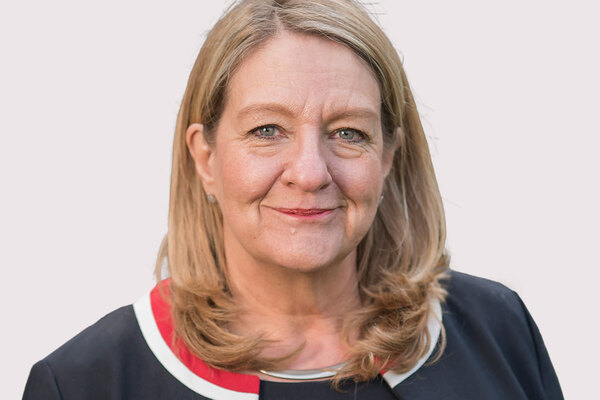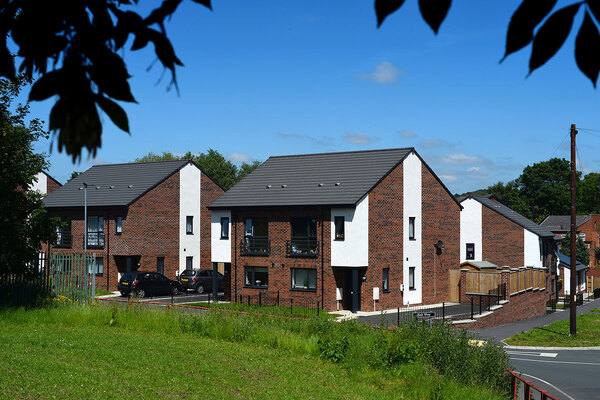You are viewing 1 of your 1 free articles

How can we tell our story better?
Housing associations are held in high esteem by their peers but refusal to address wider perceptions spells danger, says Stuart Ropke

At the very moment I’m writing this blog, I can almost guarantee that someone, somewhere, working in a housing organisation, will say “we have to tell our story better”. It’s a line that I’ve uttered many times myself.
It is a housing shibboleth for the ages. The belief that, as organisations providing housing solutions for some of the most vulnerable in our society, who have increasingly taken on wider roles as community investors and place-makers and shapers, we are operating for societal good.
And if only more people – particularly those who shape and influence our world – knew what a contribution we make to the economy, and to supporting people and communities. Then they would entrust and empower us to save, if not the world, at least the local community.
“If only more people, particularly those who shape and influence our world, knew what a contribution we make to the economy.”
Of course, all that makes sense. We know that stories are seductive, especially those which illustrate the change that a safe, secure, affordable home and accompanying support can make to those individuals who would otherwise have been homeless, workless and with poor life prospects.
The additional benefit of the savings made to the public purse from that individual not requiring interventions from health and other public services comes as the cherry on the top – the flourish on top of an already persuasive narrative.
However, increasingly in the past few months, I wonder if we are starting this story from the right place?
In Wales, we have the benefit of what has been a relatively benign policy environment, a government which is committed to increasing the number of homes built for social rent as well as other tenures, and a collaborative relationship where the voice of housing associations is valued at the heart of policymaking and development.
We are the trusted partner who has signed a pact with government committing associations to building the vast majority of affordable homes in the next five years, underpinned by promises of capital investment and secure (or at least as secure as possible in what is an ever-changing benefits system) income streams. So why the nagging feeling that we need to do things differently?
At Community Housing Cymru (CHC), we recently commissioned a perceptions audit looking at the opinions that decision-makers and other influencers have of housing associations in Wales. We have also given evidence at the Public Accounts Committee inquiry into regulation of housing associations in Wales.
On the face of it, the perceptions audit tells the story of a sector which is valued and appreciated. However, among all the positive noises about organisations being community-focused and essential, there are other observations that the sector is closed, undemocratic and leftie.
“On the face of it, the perceptions audit tells the story of a sector which is valued and appreciated.”
Equally, my view of the Public Accounts Committee inquiry has been that Assembly members have often been impressed to learn about the work housing associations are doing in communities and how tenants are involved in setting priorities and making decisions. At the same time, they have raised questions about how housing associations operate, their purpose and mission, how governance structures work, how they take decisions to invest and who they are accountable to.
Many of those working in associations would hold the view that, as organisations, they are transparent. The salaries of senior executives are in the public domain, some publish board papers on their website, others have developed accessible ways of illustrating how they invest their resources. But I would argue that there is increasing evidence suggesting that perception is not the reality felt by those interested and looking in. So should we, and do we need to, respond and act?
There is a weight of evidence that makes the case that transparent businesses are more effective organisations, that being transparent demonstrates respect for customers and other stakeholders alike and engenders trust. We need to make it easy for our tenants and partners to find out what we do, how we do it, what we have achieved and how we compare to others. These are principles that have the potential to change the terms of the conversation we have when we talk about the changing and growing role of housing associations.
So, as CHC embarks on a review of our Code of Governance in the next couple of months, we’ll be asking our members and other partners how we can embed transparency principles into our new code. This question has already been posed to sector leaders at our recent Governance Conference, and we’re looking forward to continuing those conversations.
If we genuinely want to ‘tell our story better’, perhaps the prerequisite is a sector that is recognised as open, transparent and accountable beyond the boundaries of the housing world.
Stuart Ropke, chief executive, Community Housing Cymru








